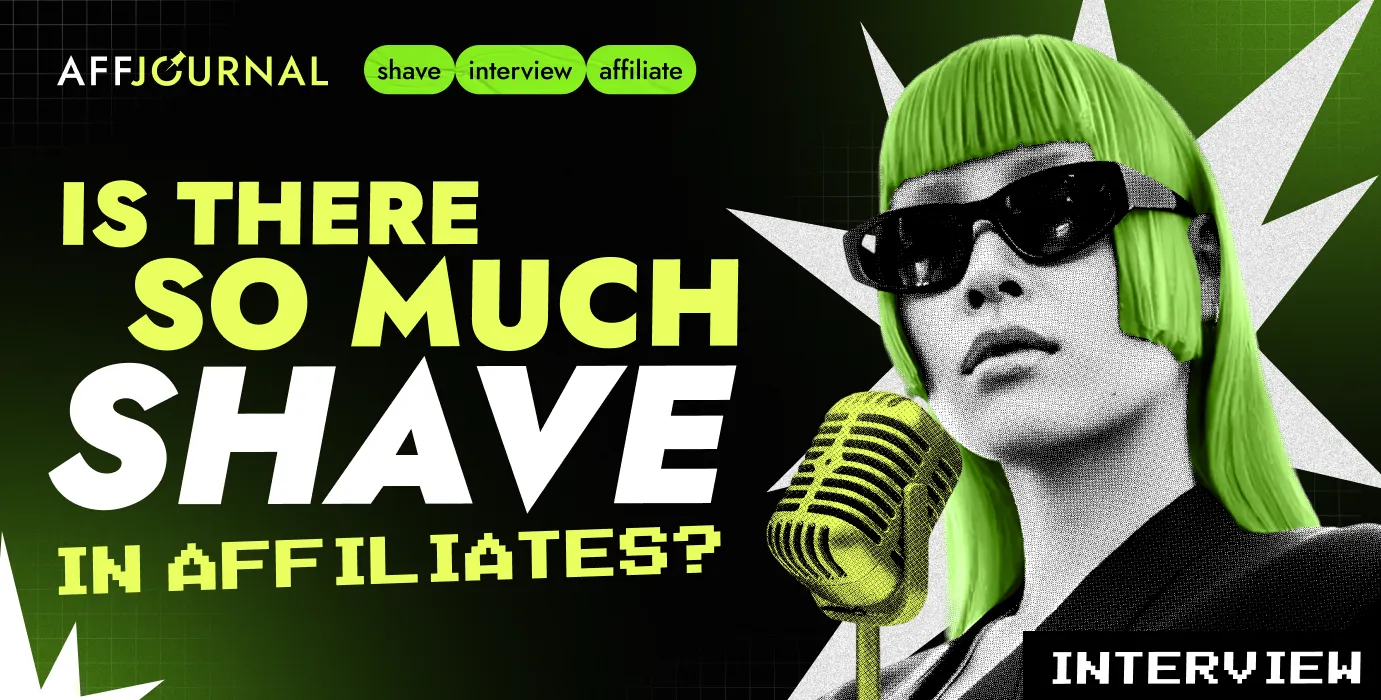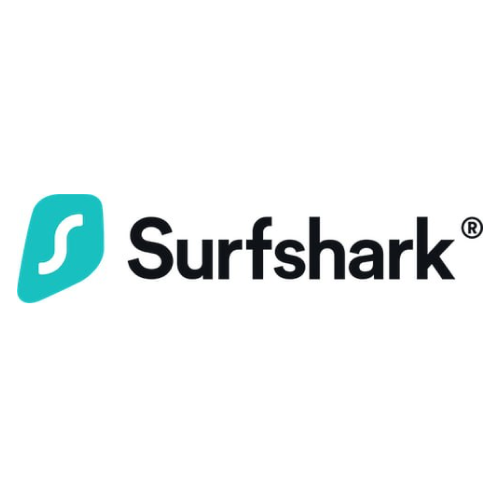

by Editor
Hello everyone, MakeMoney TEAM here. This time we decided to deviate a bit from the topics of Facebook and creatives and talk about an important issue — shaving in affiliate networks.
We aren’t as well-versed in this as we are in Facebook advertising, so we turned to a more knowledgeable person. In the world of arbitrage, she is known as Ksyusha Affiliate Lounge and runs a Telegram channel of the same name. Ksenia has worked in several major affiliate networks for a long time and knows the inner workings of arbitrage firsthand.
In one of the chats, a conversation started about how many affiliate programs shave webmasters. In the discussion, Ksenia mentioned that in reality, there isn't as much shaving as it may seem. We found this interesting, so we reached out to her and ended up with an informative interview. Ksenia no longer works with affiliate programs, so her answers are definitely trustworthy. So, let's dive into some valuable information!
— What do many arbitrageurs mistakenly perceive as shaving? Can you explain this with a specific example?
— Actually, arbitrageurs use this term whenever it suits them. At least, when they don't like the approval, don't like the rate, and so on. Shaving for them is like saying, "the competitor affiliate network offers a higher rate, and you're taking a bigger commission". Usually, when it comes to resale, in most cases, the advertiser gives different rates to different affiliate programs because each program has a different volume and level of trust. Hence, such doubts arise.
As for approvals, they often decline due to reasons independent of the call center. Of course, sometimes the call center doesn't perform well, but more often approvals drop because of holidays, elections, internal demonstrations in the client's country, and so on.
By the way, let me tell you how to fix the issue with approvals. This can also work for improving rates. You need to request a read-through of the landing page by the call center so that their specialists can adapt specifically to your landing page. When this is done, approvals usually increase. For the sake of the experiment, you can dare to give at least a test combination for processing, one that you're not very confident about or one that didn't perform well in tests. Usually, even not-so-good combinations show an increase in approvals and, consequently, in ROI.
Overall, webmasters now use the term "shaving" to refer to absolutely anything they don't like.
— In your opinion, what percentage of affiliate programs actually engage in shaving (let’s not name specific programs)?
— Well, I can't give exact numbers, of course. But I think it's around 10-15% of affiliate programs. The smallest ones are most likely to operate this way because they need to build up a balance somehow to pay webmasters in case advertisers take leads without paying for them. This happens everywhere. Although it's hard to even call this shaving. It's more about increasing their commission to build up a balance. Shaving in the market now just doesn't make sense. If it gets exposed, the company loses its reputation, and nobody needs that nowadays. It's worth assuming this at the very least. Affiliate programs are multiplying, but most webmasters stick to the popular ones because they are more familiar and trusted.
We’d like to add from our side that we’ve been working with the affiliate program for a long time and have never encountered shaving in this program, nor have we heard of negative cases from colleagues in other teams. The guys have been in the market for over 11 years, they maintain their reputation and fulfill their obligations.
— If an affiliate program advertises that they have an approval rate of 20%, 30%, or 40%, should you rely on those numbers?
— You can safely subtract 10-15% from that figure because, generally, these numbers are based on internal buying, where their combinations have long been fine-tuned by the advertiser and the call center has adapted to them. Many affiliate programs do share these combinations, but not always. So, it's best not to rely too heavily on those numbers.
However, if the affiliate network values its reputation, or really wants your excellent traffic, you can request an approval guarantee, especially if it's for nutra, for example. Most likely, they’ll provide it. It may be lower than the figures initially indicated, but you’ll have an understanding of where to go next.
— What are the signs that may indicate shaving?
— Actually, if you are really being shaved, you’ll never know for sure. But more often, such suspicions arise with affiliate programs with low levels of trust: young ones, with a dodgy domain, and/or those that have previously been noticed in payment cancellations. Returning to the question, "by what signs" — no one can say for sure, so we can only speculate on how it might be happening: one-day affiliate programs collect a database of advertisers, collect prepayment from them, give you to run traffic a little, and then disappear. The scheme is as old as the world. Manipulations with lead shaving are easily exposed because there are many metrics that track conversion, and suspicious activity can be detected simply by looking at the statistics. If you see discrepancies, there is reason to be concerned. For products with a proven track record, it doesn't make sense to shave your earnings.
— How to distinguish shaving from poor call center performance? How to recognize shaving at all?
— Actually, recognizing everything is very difficult because there are many external factors. Starting from political upheavals in the client's country and ending with just holidays and lack of sleep in the call center, which happens very often.
First of all, shaving will be noticeable on a fresh combination that you just picked up, and initially, it gave an amazing approval. Literally within a week or two, your approval rate sharply drops. Neither the call center, nor the affiliate network, nor the advertiser notifies you about this. No one says that your traffic is unprofitable for them, just keep driving traffic, but with this approval rate. Most likely, your leads are going somewhere else. The thing is, if the quality of your traffic has really dropped, you’ll most likely be openly informed about it.
Here we are talking about large GEOs — tier-2, tier-3. In tier-1, this probably won't work because there is less population and the situation isn’t so straightforward.
Note: To successfully run traffic on all zones, from tier-1 to tier-3, you need strong accounts for these GEOs, which you can purchase in our store.
— How do they shave in SS and Trial offers? Is shaving possible there at all or is this story only about COD?
Since I haven't worked much with SS and Trial offers, I can't give a 100% answer, but in my opinion, it should be impossible. Simply because the banking system is involved in these cases. In such a situation, only the bank can reject the lead. Because when such offers are integrated into the affiliate network, not only the call center is integrated, not only the description of the bank details from the advertiser's side, but also the bank itself. And it sends information once a week about who bought what.
Well, honestly, I don't know how one could deceive the system there. I don't even have any ideas about it. But, as they say, where there's a will, there's a way. Perhaps there are some schemes out there.
— I once heard that, in reality, the margin for a nutra affiliate network from a single approval is around $1. How true is this?
— Well, actually, it depends on the tier, but typically, networks always offer the maximum possible bump to attract new webmasters. This is a widespread practice, and the more competitive your conditions are in the market, the more webmasters you attract. The more webmasters you have, the more leads you get, the more advertisers you have, and the more advertisers trust the network. So yes, these are usually minimal values just to build trust in the market, and only then do they move towards marginality.
— Test leads, control purchases, postbacks, and trackers help avoid encountering shaves? Or if they want to cut, there's always a way?
— In general, never say never, and there will always be a way if there is a need. But I highly doubt that any network would risk its trust and reputation for the sake of a couple of leads. If this were to be done on a large scale, it’d become public knowledge. So, while the possibility exists, webmasters often fail to understand that it's not beneficial for anyone.
Long, profitable, and high-quality relationships always bring in more money than selective shaving, where leads are skimmed off from you bit by bit, and so on. There's simply no point in it — much better to help you scale and grow your business.
I guess I'll leave it at that. Partner networks need good long-term partners. As cliché as it may sound, that's just how it is.
Conclusions
As we can see from the interview, the issue of shaving in arbitrage is overblown and exaggerated, although not without real grounds for concern. We thank Ksenia for her valuable and detailed answers, and wish her success in her endeavors.

by Editor



comments ....(0)
Leave a comment
You must be in to leave a comment